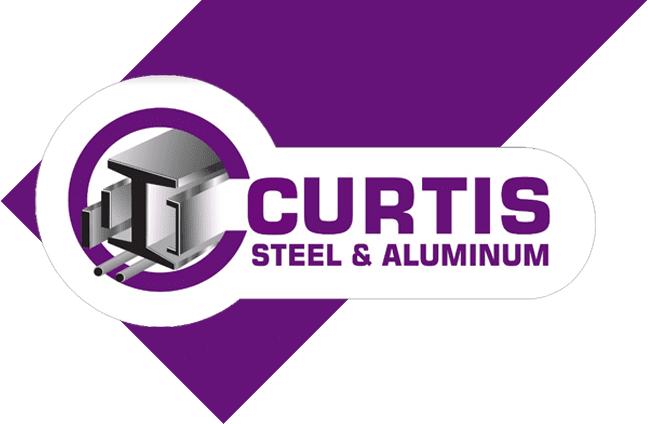Best Metals For Building Fire Pits
Few features are as captivating when creating an outdoor space as a fire pit. Fire pits provide warmth during cooler months and as a gathering space for family and friends. While stone and masonry are traditional materials for building fire pits, metal offers several benefits, including durability, ease of maintenance, and a modern aesthetic. Metal fire pits can withstand high temperatures, are available in various designs, and add a unique visual element to any backyard.
High- Quality Metal Supplies
Curtis Steel & Aluminum Co. is one of the leading providers of premium metals for DIY projects, including fire pits. We offer a range of materials perfect for creating long-lasting, visually appealing features. These metals are suitable for building modern, sleek fire pits and more rustic, weathered designs.
We provide top-quality metals like carbon steel, stainless steel, and aluminum to suit your needs. Let’s look at the best metals for building fire pits and how each can contribute to a functional and visually striking fire feature.
Best Metals for Building Fire Pits
Most high-quality products can endure high heat and the elements, ensuring your fire pit remains functional and attractive for years. Here are some metals to consider for your fire pit installation:
1. Carbon Steel
Thanks to its strength and cost-effectiveness, carbon steel is one of the most popular metals for building fire pits. It is also relatively easy to work with, making it a go-to material for DIY projects.
Advantages
Carbon steel is incredibly durable and can handle high temperatures, making it perfect for fire pit applications. Over time, carbon steel develops a natural patina, which adds character and provides a protective layer against rust. This feature is particularly appreciated in outdoor environments where the fire pit is exposed to the elements.
Disadvantages
While carbon steel’s patina protects it to some extent, it still requires proper care to prevent rusting. Regular maintenance and treatment with rust-resistant coatings or paints are necessary to prolong its life.
2. Stainless Steel
Stainless steel is an excellent option for building fire pits due to its corrosion resistance and sleek, modern appearance. It is widely regarded for its longevity and minimal maintenance requirements.
Advantages
One of stainless steel’s most significant advantages is its resistance to rust and corrosion. The characteristics make it ideal for fire pits that will be exposed to rain, snow, and moisture. The shiny, reflective surface also lends a contemporary aesthetic, perfect for modern fire pit designs. Stainless steel requires minimal upkeep, and its appearance improves with age, developing a subtle, attractive patina.
Disadvantages
Stainless steel tends to be more expensive than other metals, which may not be ideal for those with budget constraints. It can also discolor with high heat, especially in the center of the fire pit. However, this discoloration doesn’t affect its performance.
3. Aluminum
While aluminum is not typically as heat-retentive as other metals, it still offers various benefits for building fire pits, especially for those looking for a lightweight, low-maintenance option.
Advantages
Aluminum is extremely lightweight, making it easy to move and position. This makes it ideal for fire pits that must be relocated or stored in different places. It is also highly corrosion-resistant, making it an excellent choice for areas with high humidity or coastal climates. Aluminum fire pits are available in various finishes, including powder-coated options for unique and custom looks.
Disadvantages
Aluminum is not as durable as steel when it comes to retaining heat. If you’re looking for a fire pit that can maintain high temperatures for extended periods, aluminum may not be the best choice. It can also be prone to denting and warping over time with continuous exposure to extreme heat.
4. Corten Steel
Corten steel, also known as weathering steel, is another popular choice for fire pits due to its rustic, industrial appearance and impressive durability.
Advantages
Corten steel forms a protective layer of rust that acts as a natural barrier against further corrosion. This patina gives Corten steel fire pits a unique, weathered look that enhances their aesthetic appeal, especially in outdoor environments. The protective layer of rust is visually appealing and increases the material’s longevity. This type of steel is perfect for those looking for a fire pit with a more rustic or vintage design.
Disadvantages
Corten steel can take several months to develop its patina fully, so it may initially look unfinished when first installed. However, over time, this rusting process becomes a defining characteristic of the metal. Corten steel is also more expensive than other metals like carbon steel.
Choosing The Right Metal For Your Fire Pit
The best metal for your fire pit ultimately depends on several factors, including your aesthetic preferences, budget, and the level of maintenance you’re willing to undertake. We understand the importance of using the right metal for the job and are here to assist you with products for your DIY projects.
For more information or to inquire about specific metals for fire pits, call us at (866) 952-3002. You can also email us through this Contact Us form, and we will call you back.
